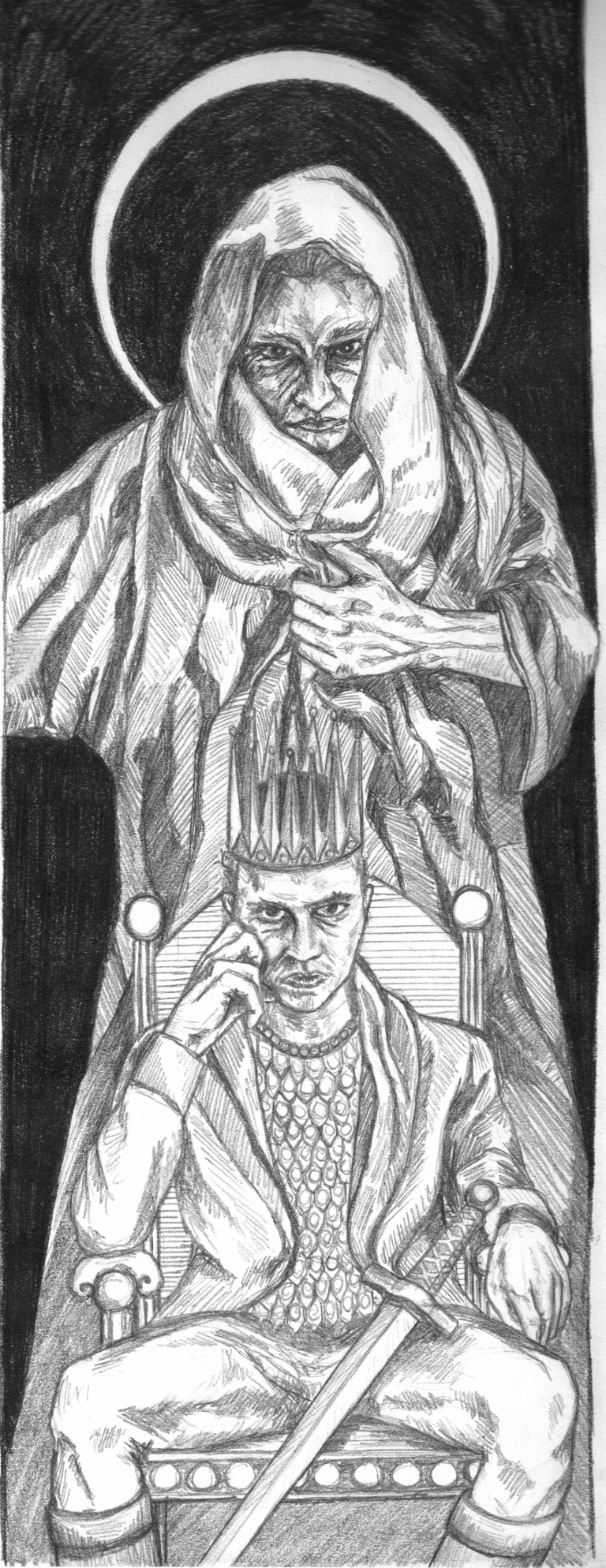The king listened with all his strength. The voice told of great battles, terrible betrayals, knights who died for love and queens who killed for spite. It spoke of voyages beyond vision, past the salt waste of the sea, over high moors billowing in the moonlight, to the heights of mist-covered mountains whose roots were in the deepest secrets of the earth. And when the voice fell silent there was not a breath nor a sound in the whole place. Each man alive held still, spellbound.
“And the battle?” asked the king at last, his voice harsh and ragged in the still air of the pavilion. “Will the battle go our way?”
“These are the shapes of things that are,” answered the hooded man, “of things that were, and of things that are to come.” His voice, deep and clear, seemed to well up from underground and to sink again into the hiddenness of silence. “The shapes do not change, only the men and women who must live them out. Who grasps the Pattern, sees all battles that ever were, and are, and will be again.”
The king’s smile was grim as the scar that ran the length of his throat. “Fine words for a tale of sorcery, but we are men of deeds. Is there no valour in your tale, no part for the soul’s striving in an hour of chance and peril?”
“No striving can make or mar what was shaped before the foundations of the earth. And yet,” the voice continued, musing, “if there be one who sees clearly the shapes that are before him, and if at the hour and the hinge of doom he stand firm in his course, then by knowledge of the Pattern he may indeed win mastery, for a time. But without this, all valour is in vain.”
“Well then, Master Patterner, this is the hour and the hinge of doom, and now your visions will be tested,” said the king. “Ten kings have I gathered to my banner, and on this day we march to the siege of the Castle Terrible, where my brother’s forces are already gathered. There the young lord will meet us on the field of battle, the renegade, who in his pride has brought destruction on our lands and people. All this you have foreseen, and never have you led us wrongly before. The mastery will be ours, by our valour, and by the Pattern itself.”
The doorway to the pavilion opened and a messenger entered, hot and short of breath. “My lord,” he said, dropping to one knee.
“Rise,” rasped the king. “What is your report?”
“My king, the army of your brother is routed. They met the forces of the young lord this morning.” The messenger stopped, dragging in a deep breath. “The greater part of your brother’s following are destroyed, and he is taken alive.”
As he spoke, the light seemed to drain from the room, until in the bleak dimness that followed, the king’s men could hardly look one another in the eye across the pavilion’s width. No, it was not so, each one realized as he looked around him: evening had fallen without their noticing, the grim dusk of early spring, when the fields are grey and winter clings on with iron hold.
“What have you done?” breathed the king in the gloom. “Light a torch, someone!”
Swiftly the dazzling light leapt up and outward. But the hooded man was nowhere to be seen.
“Curse you, Merlin!” roared the king. “Curse you and all your works!”

